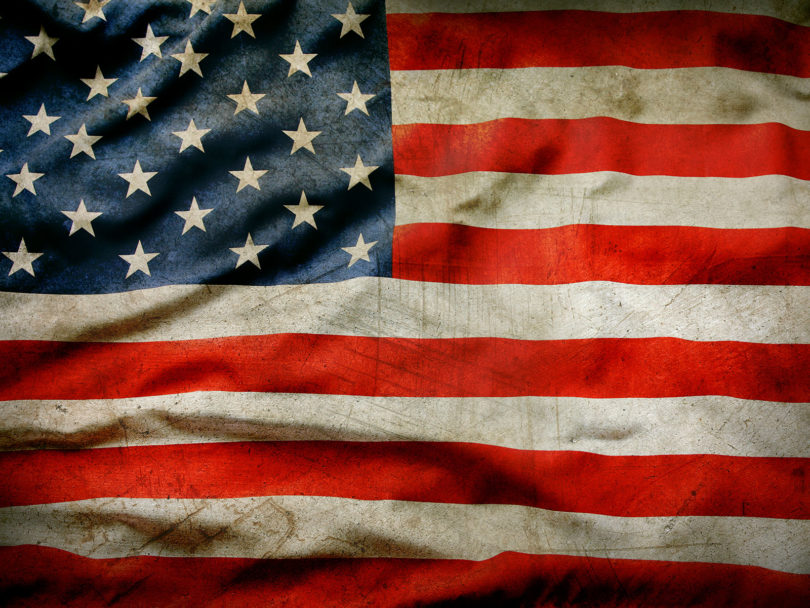I LOVE AMERICA. But, things are a mess right now; no question. We’ve been on this ride too long, and it’s time to apply the brakes. If someone were to only watch television, they’d see a distortion. They might say we have no spirit and no empathy, or worse, we’ve all lost our minds. They’d say Americans are petty, argumentative, impolite and dangerous. The media are a funhouse mirror, distorting our reflection and telling us who we are not. Are we beginning to believe them? We’re pummeled by talking heads howling through our screens and sending us face-first into the corner. They endlessly emphasize our differences with divisive rhetoric. Great for ad sales, bad for us. We want gossip; we want victimhood; we want violence; we want someone’s head. But what we want is not always what we need. That’s entertainment.
Are there things that we need to work on? Obviously. This year we’ve seen racists marching in Charlottesville and masked marauding Antifa assaulting people because they didn’t like what they had to say. It seems that everyone — from the media to the politicians — is out of control. We’re surrounded by corruption and conspiracy. Education is teetering toward indoctrination. So much is wrong that there is not enough space to list. We’re a nation in the midst of an identity crisis. Have we forgotten how to be Americans? We’re offended by soundbites and would rather get our news from comedians who aren’t even funny anymore. America is throwing a temper tantrum of epic proportions. But we are not all victims, regardless of what we are being told.
Why would anyone swim in shark-infested waters to get to this dreadful place, anyway? Why would anyone risk their lives trekking through the desert — children in tow — to get here?
So, what is right? Is there anything good to balance these perspectives? America has become the safety net for other countries with less-desirable economic and social policies. The generosity of Americans is unmatched in this way. We are the most charitable nation in recorded history. To see the good, all we have to do is look at our history. Americans have died to protect people around the world, even when there has been no economic gain. And there is no other nation that celebrates diversity more than America. We are the most diverse nation on earth. But is it diversity that gives us our strength? Maybe some of it. Perhaps more important, though, is our unity.
I cannot articulate a better warning than President Ronald Reagan did in his Farewell Address to the Nation in 1989:
An informed patriotism is what we want. And are we doing a good enough job teaching our children what America is and what she represents in the long history of the world? Those of us who are over 35 or so years of age grew up in a different America. We were taught, very directly, what it means to be an American. And we absorbed, almost in the air, a love of country and an appreciation of its institutions. If you didn’t get these things from your family you got them from the neighborhood, from the father down the street who fought in Korea or the family who lost someone at Anzio. Or you could get a sense of patriotism from school. And if all else failed you could get a sense of patriotism from the popular culture. The movies celebrated democratic values and implicitly reinforced the idea that America was special. TV was like that, too, through the mid-60s.
But now, we’re about to enter the 90s, and some things have changed. Younger parents aren’t sure that an unambivalent appreciation of America is the right thing to teach modern children. And as for those who create the popular culture, well-grounded patriotism is no longer the style. Our spirit is back, but we haven’t re-institutionalized it. We’ve got to do a better job of getting across that America is freedom — freedom of speech, freedom of religion, freedom of enterprise. And freedom is special and rare. It’s fragile; it needs protection.
So, we’ve got to teach history based not on what’s in fashion but what’s important — why the Pilgrims came here, who Jimmy Doolittle was and what those 30 seconds over Tokyo meant. … If we forget what we did, we won’t know who we are. I’m warning of an eradication of that — of the American memory that could result, ultimately, in an erosion of the American spirit. Let’s start with some basics: More attention to American history and a greater emphasis on civic ritual.
And let me offer lesson number one about America: All great change in America begins at the dinner table. So, tomorrow night in the kitchen I hope the talking begins. And children, if your parents haven’t been teaching you what it means to be an American, let ’em know and nail ’em on it. That would be a very American thing to do.
… and here we are.

